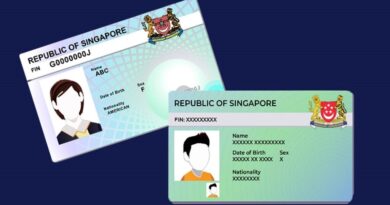How Fleet Companies Ensure Full Compliance
Fleet companies have to comply with various regulations that ensure the roadworthiness of a vehicle and safe drivers. This requires a high degree of record-keeping that provides evidence of compliance. We look at what is required.
FMCSA’s Key Programs
The Federal Motor Carrier Safety Administration (FMCSA) falls under the U.S. Department of Transportation (DOT). It is responsible for the enforcement of regulations that a fleet company has to follow. It has three core programs.
The first program is Compliance, Safety, Accountability (CSA). It relies on data from evaluations and interventions. The goals are enhanced safety, lower mortality and injury rates, and fewer accidents. Scores are given during roadside inspections by the FMCSA.
Secondly, the National Registry program evaluates the health of drivers with their group of dedicated medical examiners.
Thirdly, the Driver Restart Study compared groups of drivers in terms of their health and safety, One group had a rest of one night, while the other group had two nights or more off duty.
Specific regulations address areas of concern. The Hours-of-service (HOS) specifies how long a driver can drive before they must rest and how long that break should be. Drivers must complete vehicle inspection reports at either end of the day. Pre-employment screenings are conducted with new drivers and include their accident history, alcohol screening, and DOT drug testing. Tests must be repeated randomly during the period of employment.
IRP and IFTA Compliance
The International Registration Plan (IRP) is an agreement between all Canadian provinces and American states. It requires all fleet that meets certain criteria to be registered annually. This permits the fleet to travel within the established boundaries and pay the correct amount to each area of jurisdiction. Registration specifies where a vehicle may travel. It applies to vehicles with a gross weight of 26,000 pounds and more than two axles. A vehicle must only be registered in its home jurisdiction.
Exempt vehicles are those owned by the government, those used for recreational purposes, municipal pickups, charter buses, and goods delivery vehicles.
The International Fuel Tax Agreement, or IFTA compliance, must be reported every quarter. This requires keeping track of fuel purchased in each of the jurisdictions that form part of the agreement. This is used to calculate the fuel tax that must be paid. This will vary between jurisdictions. This has made it easier for drivers who previously had to apply for a fuel tax permit for each province or state.
Risk Management
Without fleet risk management, fleet companies are at greater peril of paying higher insurance fees, being fined, and needing legal assistance. This also covers compliance with regulatory legislation. All vehicles on the road must be adequately maintained, inspected daily, and carry the requisite equipment.
Drivers must be properly licensed and trained. They need to adhere to routes and delivery schedules. Fleet companies must provide up-to-date policies and procedures. Internal auditors keep the company prepared in case of an external audit and give them a chance to rectify shortcomings.
Staying on top of regulations can be tricky and involve a lot of paperwork. Modern fleet companies rely on fleet management software in real-time to manage their fleets.



